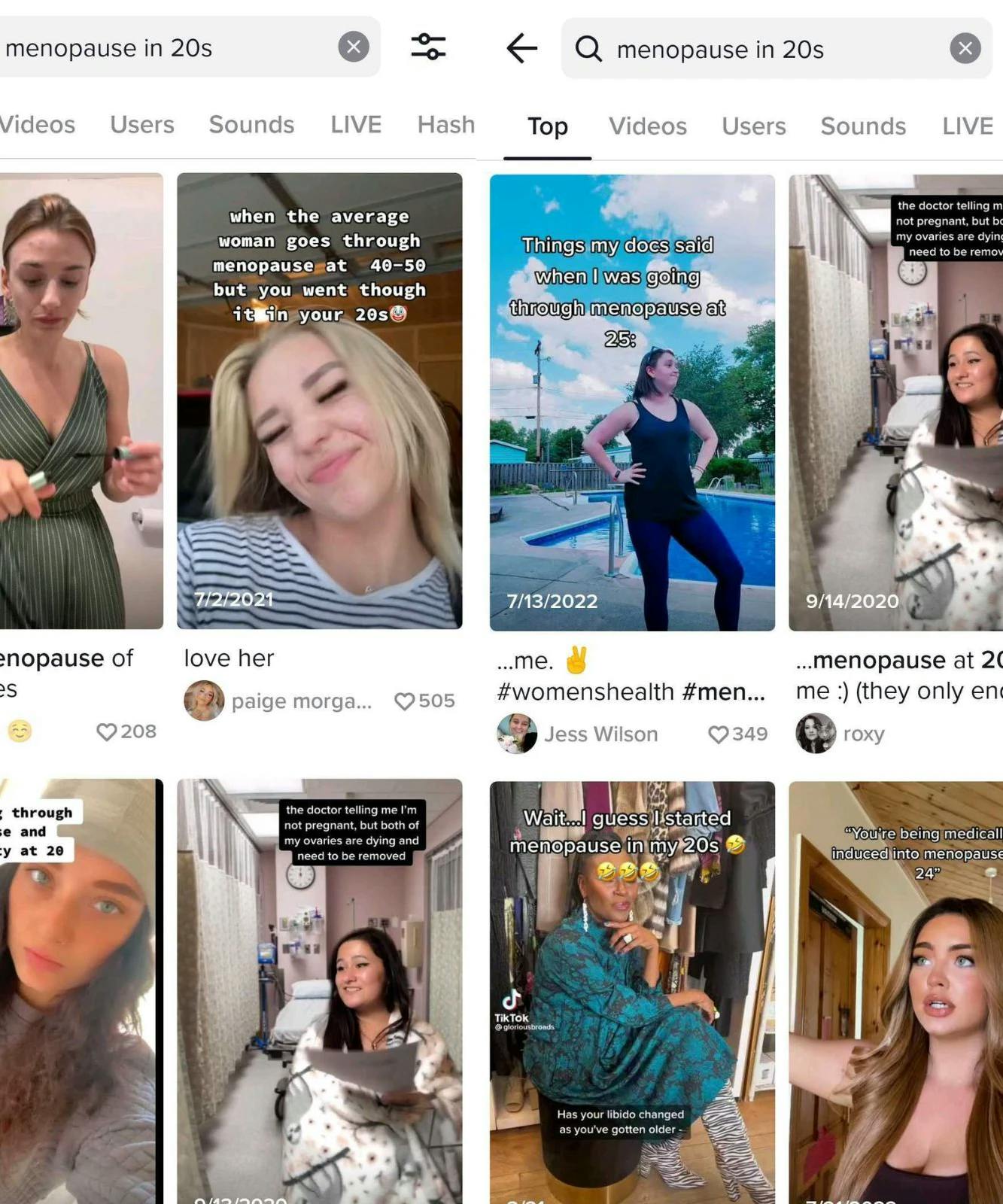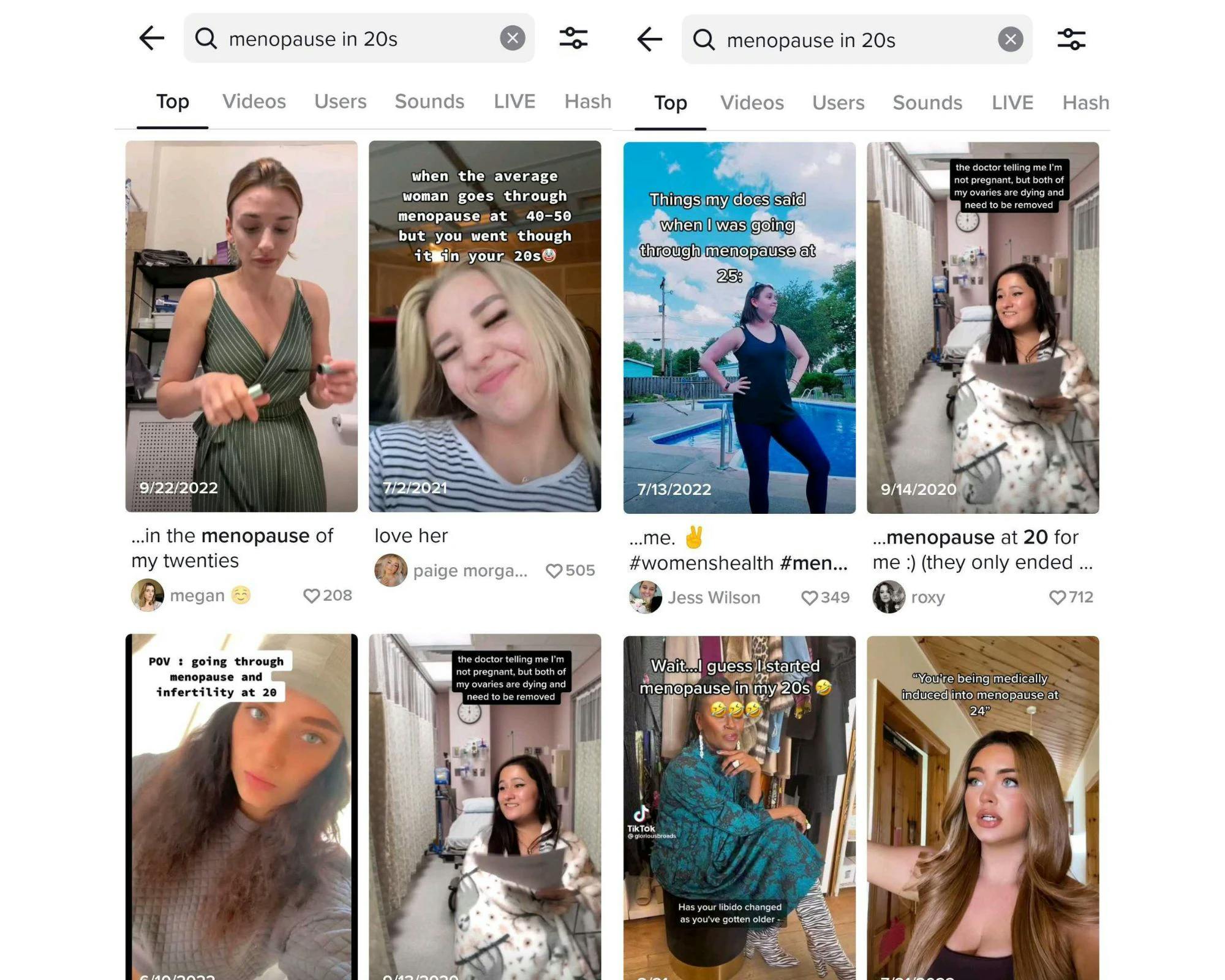Women In Their 20s Are Being Diagnosed With Menopause, But What's Causing It?
It’s evident on social media that more women are receiving diagnoses for premature menopause. Is it possible that birth control is causing all of these hormonal issues?

Premature menopause, also known as premature ovarian insufficiency (POI) or premature ovarian failure, is defined as someone getting menopause before the age of 40. In POI, the ovaries no longer produce normal levels of hormones or release eggs. Infertility is typically common at this stage, but it is possible for women with POI to get pregnant with treatment. The condition is estimated to affect 1% of women, and 0.1% of women under 30. With that being said, premature menopause is supposed to be rare, but it's evident on social media that there may be a growing number of women reaching the menopausal stage far earlier than expected, and we have to ask why.
Look up “menopause in 20s” on TikTok, and you’ll find numerous posts of young women sharing their experiences with POI. To put things in perspective, the average age of women getting menopause in the United States is 51 years old – so the fact that women in their twenties are facing the setbacks of infertility, hormonal imbalances, and more at such a young age is heartbreaking and concerning.

Source: Screenshot by Evie
On April 11, a woman (@iamleadley) posted a viral TikTok on discovering she had menopause after not menstruating for months. Comments from other users support the theory that there are more young women with premature menopause than suspected. "I was diagnosed with POI at 20 and it is a roller coaster of emotions!" wrote Madison Buddenhagen. "5 years out and I'm feeling so much better. Wish you all of the best!"
Another account shared, "I was officially diagnosed at 18, 12 years ago. I still have no answer on the cause of it."
How Birth Control Could Potentially Lead to Premature Menopause
Age 16 is reported to be the most common age for girls to begin birth control, according to Vritua Health – yet there are plenty of women who continue using contraceptives long-term, and some providers even tell women to stop contraceptives at 51. When women who have been taking birth control for a long time suddenly come off it, they experience a significant drop in the hormone estrogen – which is exactly what happens in menopause. The reason is simple: The pill suppresses our body’s natural estrogen production since it supplies us with a synthetic version. So it's possible that when you’ve relied on synthetic hormones for too long, your body will struggle to produce them even after you come off birth control.
Award-winning OB-GYN Dr. Sherry Ross believes some causes of early menopause (which occurs before age 45) could also be a genetic predisposition, chromosomal abnormalities, obesity, long smoking history, chemotherapy, autoimmune diseases, and extreme exercise. “It’s clear that short- and long-term stress, such as extreme weight loss and weight gain, can offset your hormones, causing irregular periods. The extent this type of significant stress has on your endocrine system, causing hormone adrenal depletion and possibly affecting menopause, is not as clear,” she tells Gennev.
Dr. Sherry continues, “There is an association between extreme and long-standing exercising causing weight loss which can offset your hormones and cause early menopause. Excessive exercising creates a hormonal imbalance, causing irregular ovulations. It’s less likely short-term exercising mixed in with months of not exercising could cause a cascade of events leading to an early hormonal depletion.”
While studies on birth control and its links to POI are virtually nonexistent, we should remember how contraception has impacted women’s reproductive systems and thus not brush it off as a possible cause of premature menopause.
Don’t miss anything! Sign up for our weekly newsletter and get curated content weekly!